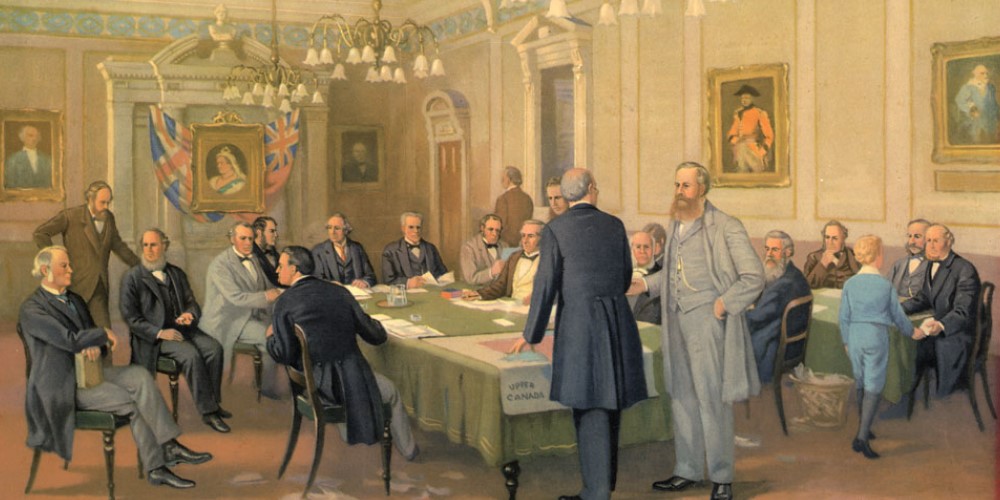Why I Am Not an Originalist
The best arguments are often between people who agree on just about everything, and so it is with me and my good friend Roger Pilon. For while we’d be hard-pressed to find ourselves at odds over the problems of the day, we do disagree about the canons of constitutional interpretation. He is an originalist who argues that the Constitution’s meaning is to be found in its text, while I say that originalism is either wrong or self-defeating.
Here’s Roger’s argument, in Law & Liberty:
The premise on which originalism rests is straightforward and simple: judges should follow originalist principles—they should interpret and apply the law as written—because otherwise they’re not applying law, but something else, like their own “corrections” of the law. Thus when Buckley goes on to write that “originalism is necessarily a political creed that seeks to hide its politics,” he’s got it rather backwards. It’s a legal creed that makes no effort to hide—or reveal—any politics, including the politics that brought the law into being. Again, it aims simply to read and apply that law as written. And that is true whether judges are applying the American, the Canadian, or the old Soviet constitutions.
If Roger is right, a judge is bound to give effect to the words of a constitution, however unjust or wrong-headed they might seem. The American Constitution, a fascist constitution, it’s all the same to an originalist. Any attempt to mitigate the rigors of a racist constitution would therefore be condemned by the originalist. But I don’t think many of us would agree with this. Even a liberal constitution may stand in need of judicial tweaking, and the best example of that is the 1867 British North America (BNA) Act that united Canada.
The BNA Act was meant to be a centralizing document. Canada’s Founders thought the American Civil War could be blamed on a constitution that gave too much power to the states, and wanted something very different for Canada. But their centralizing constitution was turned inside out by the Judicial Committee of the Privy Council, which in Citizens Insurance Company v. Parsons (1881) gave a narrow interpretation to the federal trade and commerce power of sec. 91(2) of the BNA Act. In so doing, the Court shifted power from Ottawa to the provinces; and if you’re a federalist, as Roger and I are, I should have thought you’d be pleased with this.
Roger is right about one thing. You can’t be an originalist without being a comparativist. And that, by the way, will tell you something about originalism. For example, a glance at the text of the BNA Act, together with an understanding of what the Canadian Founders meant, will tell you that what matters is their original intent and not the words in the document. The text describes an absolute monarchy; the secret intent was a democracy.
Unlike Roger, however, American originalists generally aren’t comparativists. They don’t speak about constitutions in other countries, even those as free as the United States. Either implicitly or explicitly, they make a claim about the superiority of the American constitution. Roger is much more sophisticated than that, but he nevertheless says of the Framers’ constitution that:
The moral vision implicit in the document, especially after corrected by the Civil War Amendments, comes straight out of the natural rights vision that the Declaration of Independence adumbrated.
That’s an oft-heard argument, but I’d challenge Roger to find passages from the notes of the 1787 Convention that bolster his claim. For my part, it would be easy to come up with scores of delegates’ speeches which are wholly inconsistent with it, from their detestation of democracy, to their acceptance of slavery, to their thoughts about human fallibility and intrinsic vileness. And if we had to wait till 1865 for that to be corrected, what were the Framers in the interim? Chopped liver?
More to the point, if the attraction of originalism turns on the political superiority of the Framers’ ideas over those found in recent Supreme Court decisions (a claim Roger suggests is an “additional reason to be an originalist”), then originalism is necessarily a political doctrine, and as such is self-defeating. Those on the Left who prefer the present constitutional regime and accuse the originalist of hypocrisy, of veiling his right-wing politics behind a screen, would be proven correct.
Is it all politics, then? If it were, I might indeed be an originalist, in America at least. And in 2020 at least, not 1857. But the rule of law means that it can’t be all politics. Instead, we must seek some neutral ground between a false originalism that at its core is politically right-wing and the left-liberalism of recent Supreme Court jurisprudence. That entails a legal regime in which majority decisions of the Supreme Court are legitimately the law of the land, even if one thinks them ill-considered. But in that case, we might, with the benefit of experience, learn how those rules have coarsened and harmed us, and false starts enacted by a temporary Supreme Court majority might prudently be reversed without waiting for a politically impossible constitutional amendment. That’s not the judicial revolution the originalist wants, but then good lawyers instinctively mistrust revolutions.

